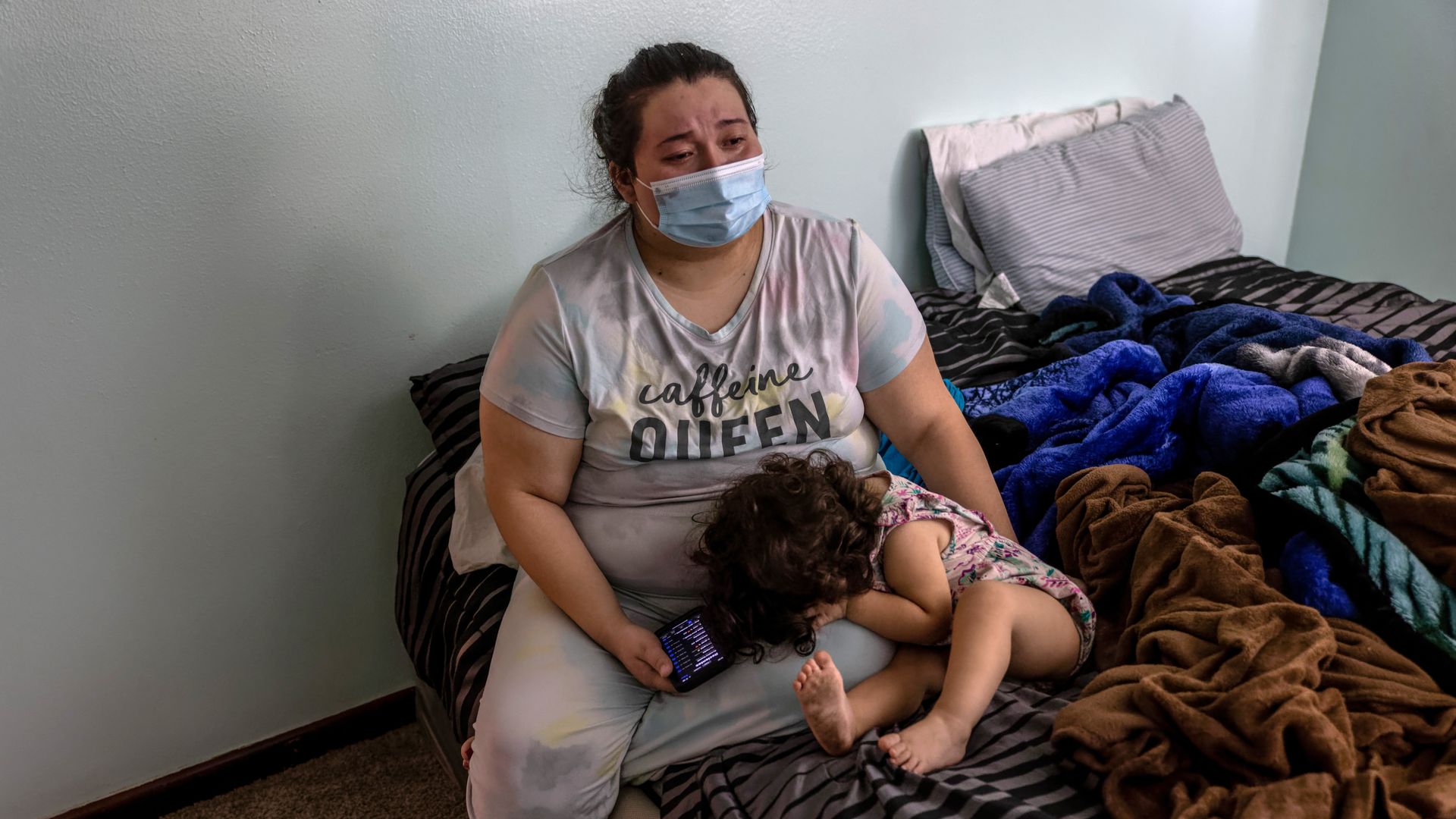Oct 7, 2021 - Health
Study: Over 142,000 children had caregivers die during COVID pandemic
Add Axios as your preferred source to
see more of our stories on Google.

A woman, 25, grieves with her daughter, 2, after her mother, 54, died at home of COVID on Sept. 13 in Houston. Photo: John Moore/Getty Images
